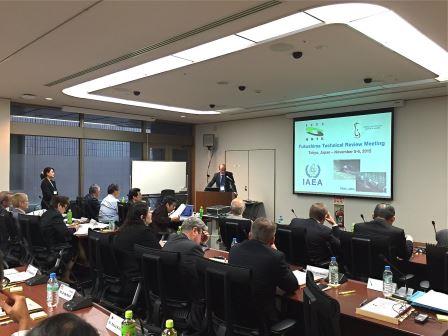Final ISTC/STCU Fukushima Initiative Expert Committee review meeting in Tokyo, Japan

Siix research projects of the Initiative provided unique understanding and practical approaches to monitoring and remediation following the Fukushima Daiichi nuclear accident in Japan. The projects were funded by the European Union, the Ministry of Education, Culture, Sports, Science and Technology of Japan, and the U.S. Department of Energy’s National Nuclear Security Administration (via its former GIPP Program).
Project representatives presented the outcomes of their work (link to Summary report in English --> Download and in Japanese -->Download) with critical review designated experts from Japan, the United States, and the IAEA.
The review session of the Fukushima Initiative recognized the following achievements:
1. The Initiative facilitated transfer of scientific knowledge from Armenia, Kazakhstan, and Ukraine which have a robust nuclear program as well as they have studied incidences of severe environmental contamination with the former Soviet Union.
2. The sharing of this knowledge is valuable, as it provides greater insight into the complex relationship of such events within the local natural environment and its related ecosystems.
3. The projects’ results can be utilized in providing more comprehensive monitoring and remediation of the affected environment in and around the Fukushima site.
4. Although the results are considered to be at a basic fundamental stage of development through continued study, they can be refined in such a manner as to be considered for application in the future.
5. Via bilateral collaborative studies between the scientists and their Japanese counterparts, and novel monitoring and remediation technologies can be derived with such applications in the Fukushima area.
6. International collaboration to understand the realities of a severe nuclear accident is important, as it can contribute to more complete mitigation and remediation.
7. Expanded knowledge contributes to the development of more effective operating structures for preventing future events as well as for responding to emergencies.
8. The Initiative was a successful showcase of the benefits of joint activity of the ISTC and the STCU.
For more information on the Initiative and related projects, please contact the ISTC (matsunaga@istc.int, taylor@istc.int) and STCU (iryna.tomashevska@stcu.int).
Link to "the Final ISTC/STCU Fukushima Initiative Expert Committee review meeting on remediation and monitoring in response to the Fukushima nuclear accident" --> read an article

